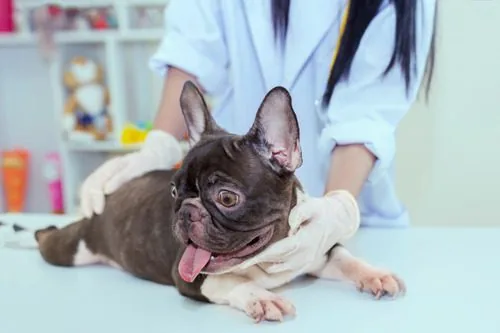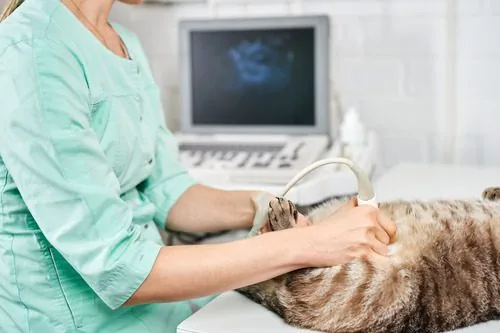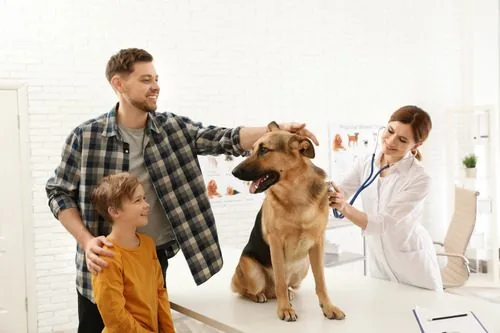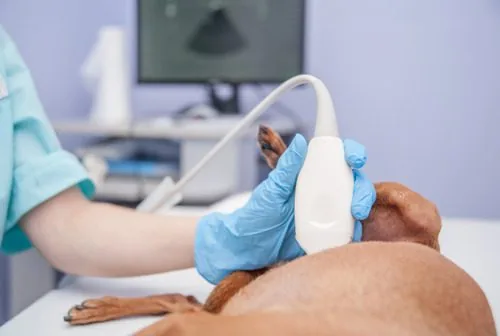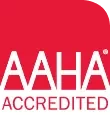Why Does My Dog Have Hiccups?
Hiccups are just as annoying to dogs as they are to humans. Hiccups are common in dogs, especially puppies who do not have fully developed bodies with reasonable muscular control, and they occur when they swallow air and their diaphragm contracts.
Dogs usually get hiccups from eating or drinking too fast. Hiccups can also occur if your dog is excited or stressed. In rare instances, hiccups can be caused by an underlying health issue. Make sure you pay attention to symptoms you may notice in your dog when they develop hiccups.
Treating hiccups in dogs can be as easy as giving them a good massage or some water. If you want to know why your dog has hiccups, look no further than the information below.

What Exactly is a Dog Hiccup?
Dog hiccups occur when your dog’s diaphragm involuntarily contracts. The diaphragm is muscular tissue that separates the abdomen from the chest. The diaphragm plays a crucial role in breathing because it expands the chest cavity and takes air into the lungs when it contracts.
A dog hiccup is made the same way a human one is. The mechanics of the hiccup is a sudden contraction of the diaphragm, which causes air to be taken in quickly. This rush of air causes the voice box to slam shut, and the sound hic will occur.
When the diaphragm contracts, it makes your dog inhale air. Then, the air is suddenly cut off by the glottis closing, which is a part of the voice box, resulting in a hiccup. A hiccup can be defined as a slight spasm that triggers movement and the little “hic” noise. During a hiccup, the contraction of the diaphragm may repeat continuously.
What is the Reason My Dog Has Hiccups?
Puppies tend to get hiccups more than adult dogs. Unfortunately, there is no way of telling why your dog has hiccups. However, there are several working theories. The following will help you see the possible reasons for hiccups in your dog.
Your Dog Ate or Drank Too Quickly
Some dogs get so excited about their food that they will consume it too fast, which causes a lot of air in the stomach. It puts stress on the esophagus and stomach, resulting in hiccups. You want to help your dog control themselves, eat more slowly, and practice portion control to avoid inhaling their food all at once.
Your Dog Ate Foods that Irritated Their Esophagus
Spicy foods can irritate your dog’s esophagus, causing them to hiccup. Some foods produce excess gas in your dog and can cause them to hiccup. Many high-grain foods have also been shown to precipitate hiccups in dogs. Finally, if your dog drinks water that is too cold, it may affect their esophagus and trigger your dog’s diaphragm to spasm.
Anxiety, Stress, and Overexcitement
Stress and over-excitement can cause your dog to hiccup because it affects the heart rate and cortisol levels in their body. When these levels rise, it irritates the diaphragm. Your dog may take shorter breaths when they are excited, and they may breathe through their chest instead of using their diaphragm.
Energetic play may be another cause of hiccups in dogs. When your dog plays hard, it elevates their heart rate, and it may result in hiccups. If your dog is anxious, it may also trigger hiccups as well. Barking too much may also lead to hiccups, as dogs often bark when they become excited.
Gastrointestinal Problems
If your pup has hiccups often, and they are severe, they can be caused by gastrointestinal problems. Inflammatory bowel disease and gastrointestinal reflux disease have been linked to chronic hiccups. Gastrointestinal problems can occur if your dog overeats and swallows a lot of air. It may be accompanied by vomiting and abdominal pain.
Underlying Conditions
Hiccups could be a sign of an underlying condition. Keep in mind that the following possible causes for hiccups are infrequent, and if your pup’s hiccups seem to be continuous, you may need to take your dog to the vet to see if an underlying disorder is causing the hiccups:
- Pneumonia
- Bronchitis
- Pericarditis
- Respiratory defect
- Esophageal tumor
- Asthma
- Heatstroke
In most cases, hiccups are harmless and do not require any treatment or intervention. However, hiccups that are constant and last for more than an hour may be a cause for concern.
Why Do Puppies Get Hiccups More Than Adult Dogs? 
Puppies tend to experience hiccups more than older dogs because of the way they swallow air. Puppies are very rambunctious and often become excited quickly. They are also more physically active than older dogs. Sometimes, puppies will get hiccups when they get tired or feel cold.
Furthermore, puppies tend to have weaker muscles that are not as developed. Because of this, it is difficult for them to control their little bodies and they are often helpless against the power of their diaphragm! It is common for puppies to experience hiccups daily.
Typically, their hiccups only last for a few minutes. However, if the hiccups are severe or continuous, as previously mentioned, you need to watch out for the following symptoms:
- Coughing
- Sneezing
- Lack of energy
- Drooling
- Hard swallowing
- Weakness
A vet visit would be wise if you observe any of the above indicators in your pup.
Can I Help My Dog with Hiccups?
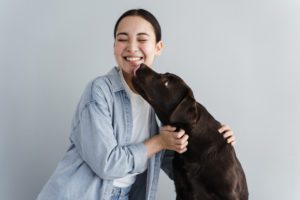
Most of the time, hiccups will go away on their own. However, there are some instances where they can be long-lasting. Unlike people, you never want to frighten or alarm your dog to try to get rid of the hiccups. The following are some ways that you may be able to help them alleviate their hiccups:
Tummy Rubs
Giving your pup a good tummy rub when they have a case of hiccups can help relieve them of stress. This can help them to relax and breathe easier, which can help to take away their hiccups. A chest massage may also help them calm down.
Try to Have Them Drink Water
Drinking water is one of the first ways we learn as children to help us be free of hiccups. Water can help and works just as well in dogs, too. Always have fresh, clean water for your dog. If they have hiccups, encourage them to drink water, but not too fast!
Teaching Them to Eat More Slowly
As previously mentioned, dogs can get hiccups when they eat their food too fast. You can help your dog eat slower and control their portions with a slow feeder. You can try feeding them smaller portions three or four times a day instead of eating two bigger meals.
Giving Them a Spoonful of Honey
Try giving your dog a spoonful of honey. It will soothe your pup’s throat and help them with any irritation they may have in their esophagus. It will also help your dog calm down, and keep their diaphragm from contracting, which will stop the hiccups.
If you give your dog honey, make sure it does not contain any harmful ingredients, such as xylitol, a sugar substitute that is highly toxic to dogs.
Conclusion
Hiccups are common in dogs, especially when they eat or drink too quickly and swallow air. For the most part, hiccups are nothing to worry about unless other more serious symptoms accompany them. Hiccups in dogs will usually go away on their own. However, if they last a long time, take them to the vet to be safe.
For pups in the Winter Haven, FL area, Veterinary Healthcare Associates is available to treat hiccups in dogs. They can be reached at (863) 324-3340 or you can make an appointment today!
Recent Posts
Why You Should Build Your Veterinary Career at Veterinary Healthcare Associates
Why You Should Build Your Veterinary Career at Veterinary Healthcare Associates Embarking on a veterinary career is…
French Bulldog Nose Surgery: Everything You Need to Know
French Bulldog Nose Surgery: Everything You Need to Know French Bulldogs are adored for their playful personalities…
Veterinary Diagnostic Imaging: How It Keeps Pets Healthy
Veterinary Diagnostic Imaging: How It Keeps Pets Healthy When it comes to protecting your pet’s health, veterinary…
How Much Does Hyperbaric Oxygen Therapy (HBOT) for Dogs Cost?
How Much Does Hyperbaric Oxygen Therapy (HBOT) for Dogs Cost? When your dog is facing a health…
Cat Sonogram & Ultrasound: Everything You Need to Know
Cat Sonogram & Ultrasound: Everything You Need to Know Cats have a way of concealing discomfort, making…
About Veterinary Healthcare Associates
Veterinary Healthcare Associates in Winter Haven, FL, was established over 30 years ago as Maxwell Animal Clinic by Dr. John Maxwell. Maxwell Animal Clinic was a one-doctor general practice offering preventive care, dentistry, and standard surgical services to the community. As the years passed, Maxwell Animal Clinic evolved into a thriving 10-doctor general, specialty referral, and emergency veterinary practice.


